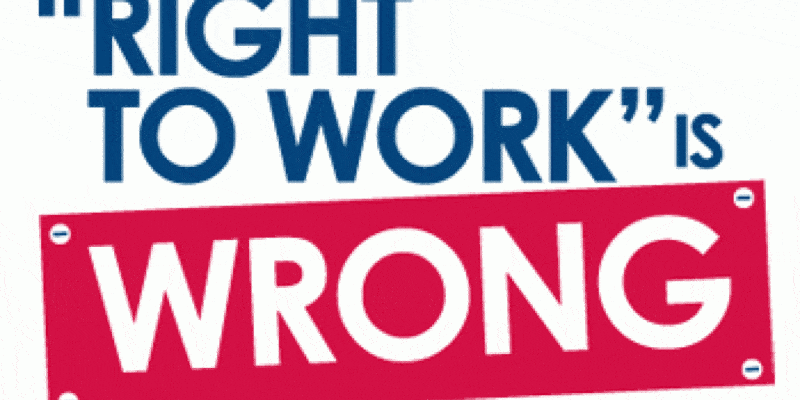By: Alexia Fernández Campbell
August 7, 2018
It’s the first time voters have overturned right-to-work laws through a ballot referendum in recent years.
Missouri voters made history on Tuesday, blocking the state’s Republican lawmakers from enacting right-to-work laws to cripple labor unions. The state’s primary voters rejected Proposition A, which would have made it illegal for unions to charge fees to workers they represent who don’t want to pay them, by a two-to-one margin when the vote was called by Decision Desk around 10 pm Eastern.
Missouri was on track to become the 28th state to enact such a law. Last year, the state’s then-governor, Republican Eric Greitens, signed the right-to-work bill, saying that it would encourage businesses to move to the state. Missouri would have followed Michigan, Wisconsin, and other Rust Belt states that have passed similar anti-union measures in recent years under pressure from business groups.
But workers and union leaders in Missouri put up a fight. They gathered about 300,000 signatures – more than double the number needed – to freeze the law and put it on the ballot for voters to decide. On Tuesday, voters rejected the bill.
Tuesday’s election marks the first time voters have overturned a right-to-work law through a ballot referendum since Ohio did something similar in 2011. No other state has even tried to in recent years. It’s also a major victory for the US labor movement at a time when Republican leaders, big businesses, and the courts have doubled down on their attempts to weaken the influence of labor unions and the workers they represent. And after the US Supreme Court’s June ruling in Janus v. AFSCME, which mandated right-to-work rules for all government unions, Missouri’s vote is a sign that unions are far from dead. They might even see a revival.

